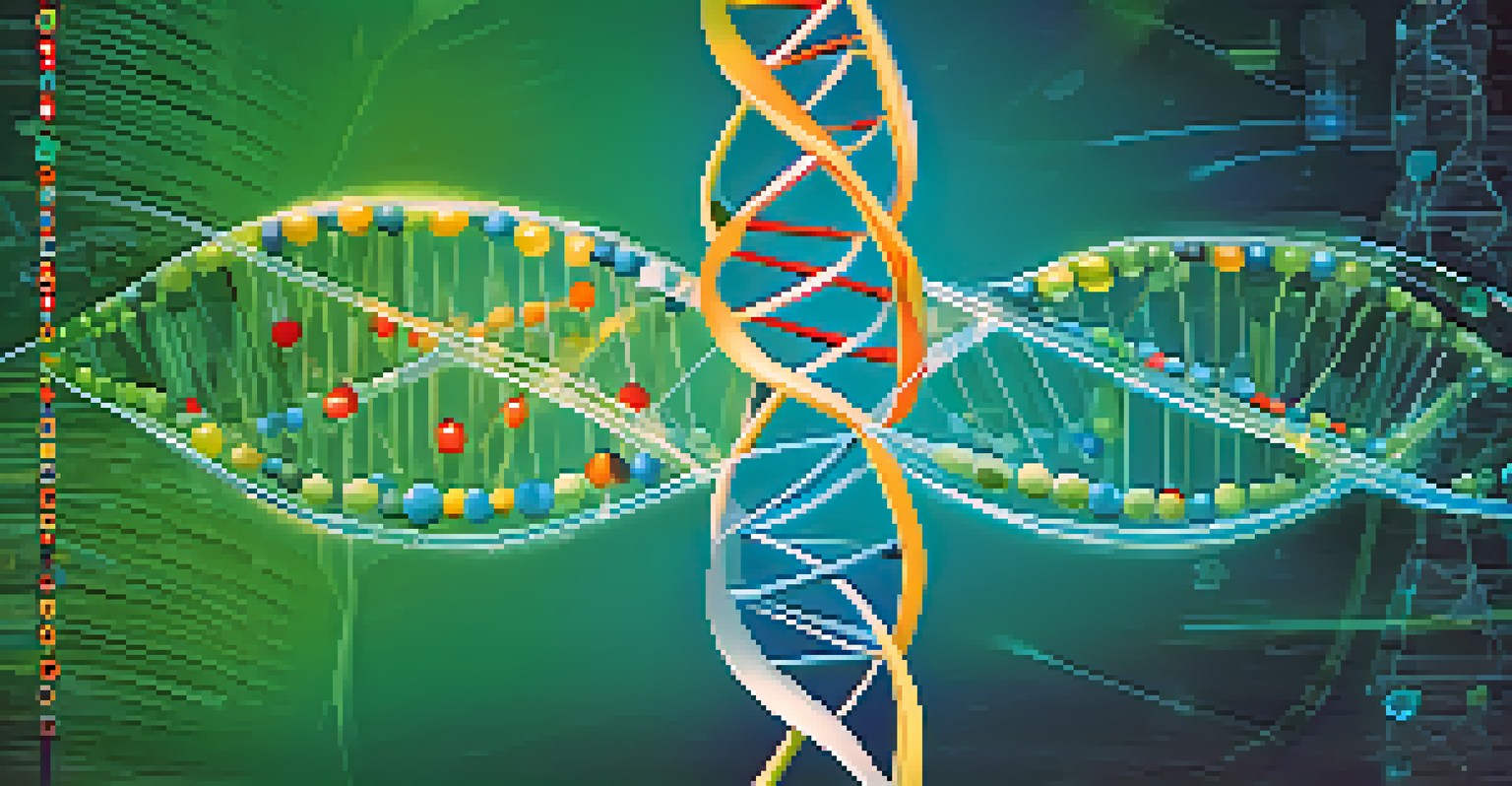Integrating Big Data in Precision Medicine for Better Outcomes

Understanding Big Data and Precision Medicine
Big data refers to the vast amount of information generated every second in our digital world. In healthcare, this includes everything from patient records and medical imaging to genetic data. Precision medicine, on the other hand, tailors medical treatment to the individual characteristics of each patient, often based on their genetic makeup.
Without data, you're just another person with an opinion.
Integrating these two concepts means leveraging the power of big data to enhance precision medicine. This approach allows healthcare providers to analyze extensive datasets to identify patterns and insights that can lead to more effective and personalized treatments. Imagine a doctor being able to analyze thousands of similar cases to determine the best treatment plan for a specific patient.
Ultimately, the fusion of big data and precision medicine aims to improve patient outcomes by ensuring that treatments are not just one-size-fits-all. Instead, they are crafted specifically for the individual, making healthcare more effective and targeted.
The Role of Data Collection in Precision Medicine
Data collection is the backbone of precision medicine, as it provides the raw material for analysis. This involves gathering information from various sources, including electronic health records, wearables, and genomic sequencing. Each piece of data contributes to a more comprehensive understanding of a patient's health.

For example, a patient's lifestyle choices, such as diet and exercise habits, can be tracked alongside their genetic data. By analyzing this information collectively, healthcare providers can identify risk factors and tailor prevention strategies specifically for that patient. It's like having a detailed map that guides the healthcare journey.
Big Data Enhances Precision Medicine
Integrating big data allows healthcare providers to tailor treatments based on extensive patient data, improving personalized care.
Moreover, the more data that is collected, the more accurate the insights can be. This means that as technology evolves and more data becomes available, precision medicine will continue to improve, leading to better health outcomes for patients.
Data Analytics: Turning Raw Data into Insights
Once data is collected, the next step is data analytics, which involves interpreting the vast amounts of information to extract meaningful insights. Advanced algorithms and machine learning techniques play a crucial role here, allowing healthcare professionals to spot trends and correlations that might be invisible to the naked eye.
The greatest danger in times of turbulence is not the turbulence—it is to act with yesterday's logic.
For instance, by analyzing patient responses to different treatments, data analytics can reveal which therapies are most effective for specific genetic profiles. This means that doctors can make more informed decisions, leading to higher success rates in treatments. It's similar to finding the right key for a lock after trying various options.
In essence, data analytics transforms big data from a collection of numbers into actionable knowledge that can directly impact patient care. This step is vital in ensuring that precision medicine can deliver on its promise of personalized treatment.
Genomics: A Key Player in Precision Medicine
Genomics, the study of a person's genes and their functions, is at the heart of precision medicine. By analyzing a patient's genetic makeup, healthcare providers can identify predispositions to certain diseases and tailor treatment accordingly. This adds a layer of personalization that traditional medicine lacks.
For example, if genetic testing reveals that a patient has a higher risk for breast cancer, doctors can take proactive measures, such as increased surveillance or preventive surgery. This not only improves the chances of early detection but also empowers patients to take control of their health.
Data Collection is Crucial
Effective data collection from diverse sources is essential for precision medicine, as it provides the foundation for tailored patient care.
As genomic data becomes more integrated with big data analytics, the potential for improved outcomes grows exponentially. The collaboration between genomics and big data can lead to groundbreaking discoveries in disease prevention and treatment strategies.
Real-World Applications of Big Data in Healthcare
Big data is already making waves in various areas of healthcare, from drug discovery to patient management. For instance, researchers can analyze massive datasets of clinical trials to identify which drugs are most effective for specific conditions. This accelerates the development of new therapies and ensures they are more effective.
Moreover, hospitals are using big data to optimize patient care pathways, reducing wait times and improving patient satisfaction. By analyzing patient flow and treatment outcomes, facilities can streamline processes and allocate resources more efficiently. It's akin to a well-oiled machine where every part works in harmony.
These real-world applications demonstrate that the integration of big data in healthcare is not just a theoretical concept but a practical reality that enhances patient care and operational efficiency.
Challenges in Integrating Big Data and Precision Medicine
While the potential of integrating big data in precision medicine is immense, several challenges must be addressed. One major issue is data privacy and security, as sensitive health information must be protected against breaches. Patients need to feel confident that their information is safe, as trust is essential in healthcare.
Additionally, the sheer volume and variety of data can be overwhelming. Healthcare providers need the right tools and skills to analyze this data effectively. Without appropriate training, even the most sophisticated algorithms may yield inaccurate results, leading to poor patient outcomes.
Challenges in Data Integration
Data privacy, overwhelming volumes, and standardization issues present significant challenges to effectively integrating big data in precision medicine.
Lastly, standardization of data is crucial for meaningful analysis. Different healthcare systems often use varying formats and terminologies, making it difficult to combine datasets. Overcoming these challenges will be key to unlocking the full potential of big data in precision medicine.
The Future of Big Data in Precision Medicine
Looking ahead, the future of big data in precision medicine is bright. As technology continues to evolve, we can expect even more sophisticated tools for data analysis, enabling healthcare providers to make better-informed decisions. This could lead to breakthroughs in understanding complex diseases and developing targeted therapies.
Moreover, the integration of artificial intelligence (AI) with big data analytics will likely enhance predictive capabilities, allowing for earlier interventions and preventive care. Imagine a world where doctors can predict health issues before they arise, leading to proactive rather than reactive healthcare.

Ultimately, the continued advancement in big data and precision medicine holds the promise of revolutionizing healthcare, making it more personalized, efficient, and effective for all patients.